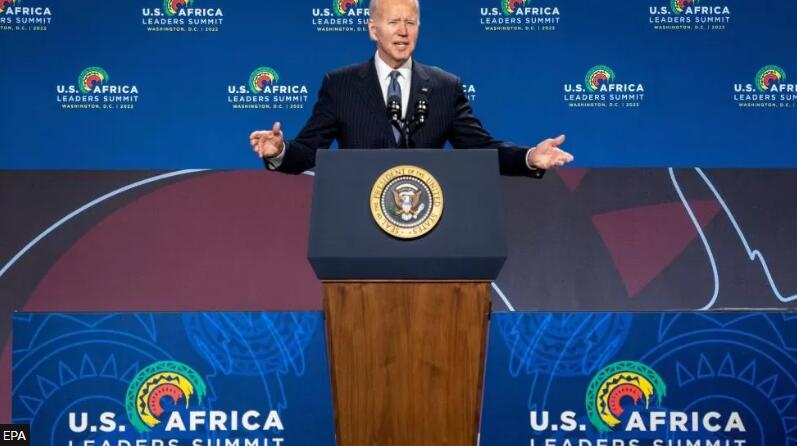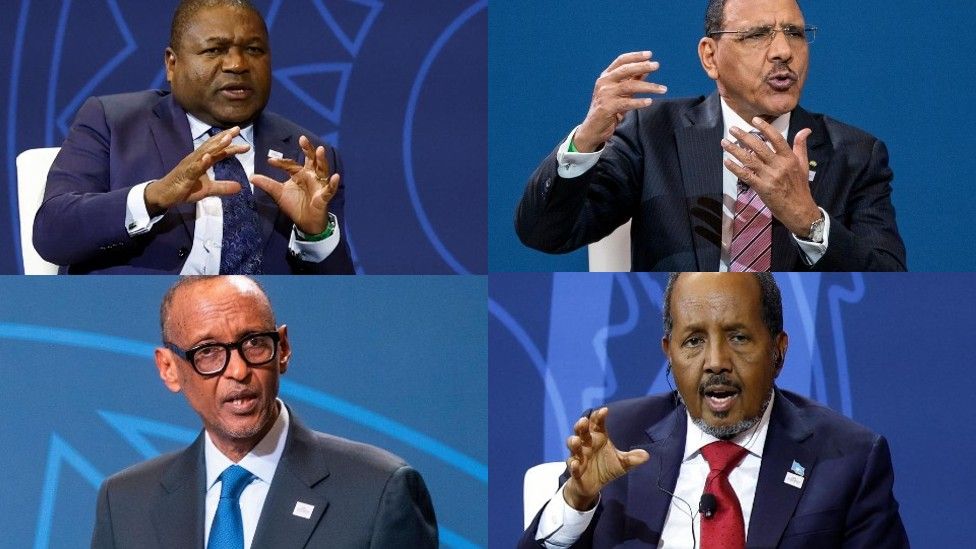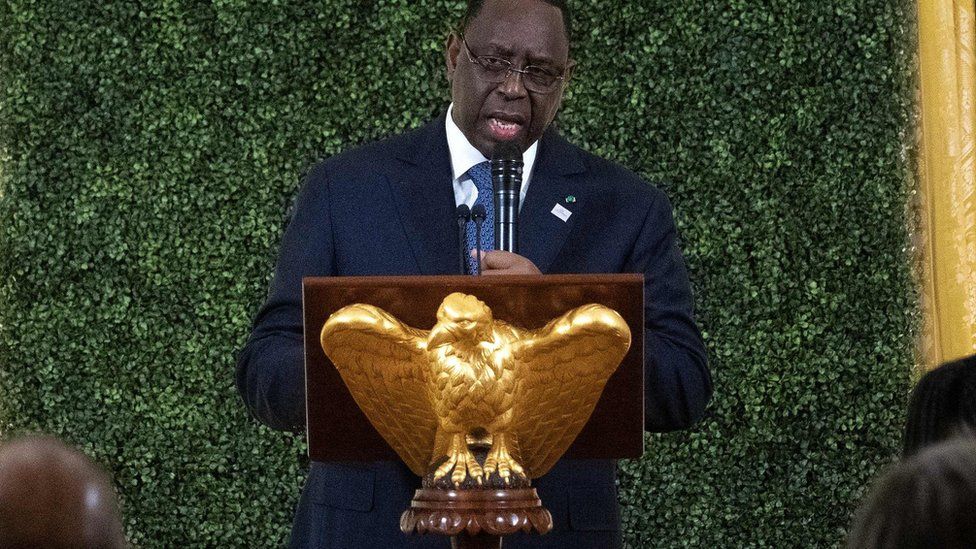
US-Africa: President Joe Biden courts the continent as rivals make advances
Each is keen to sweeten the deal, but there seems to be an acceptance that these days, insisting on an exclusive relationship with African countries may no longer be tenable.
Washington is fighting for attention with Beijing, and to some extent Moscow, and the just-concluded US-Africa Leaders Summit is the latest example of this struggle.
In recent years, China has stolen a march on the US. Its trade with Africa now surpasses the amount that the US, or other Western nations, does with the continent.
The previous US administration of President Donald Trump had been explicit in its assessment of China’s relationship with Africa.
It centred its Africa policy around countering what it saw as a “predatory” China when it was unveiled by the former National Security Advisor John Bolton. He also talked about not wanting to waste “hard-earned taxpayer dollars”.
But this week’s rhetoric from the White House showed a different approach.

First of all, the word “China” did not pass President Joe Biden’s lips in his main address to the African leaders on Wednesday.
US Secretary of State Anthony Blinken had given some hint to this approach when, during his first visit to the continent he said: “Our Africa policy is about Africa, not China.”
Nevertheless, there is no doubt about the rivalry and the US made clear its intention to promote and expand its interests in health, environment, clean energy and security as well as trade.
Discussions at the summit have focussed on building on already existing programmes, including:
- Prosper Africa – a US government initiative “to increase two-way trade” between African nations and the US launched in 2018
- the Clinton-era Africa Growth and Opportunity Act, Agoa, which provides African apparel manufacturers preferential access to the US market
- the Power Africa initiative launched by President Obama to connect millions of African to the grid among others.
But the successes in those programmes have been slow to be realised.
Africa only accounts for just over 1% of US foreign trade, which is dominated by petroleum imports from Nigeria and Angola.
Mr Blinken described the possibilities that closer co-operation could bring.
“Together as the world’s largest economy and one of the world’s fastest-growing economic regions,” there is potential “to build one of the 21st Century’s most successful economic partnerships”.
To help this he announced his country’s intention to send an investment advisor to the secretariat of the Africa Continental Free Trade Area, which was created by the African Union to break down barriers to trade and promote growth within the continent.

The US is no doubt eyeing economic opportunities.
Apart from the fast-growing economies, Africa is also home to the world’s youngest and fastest-growing population. It means the consumer market is expanding rapidly as is the labour force – both aspects making doing business with the continent attractive.
But it also potentially presents security challenges.
If the economies do not grow, then young people are more likely to make risky journeys to find a better life elsewhere. In addition, a disgruntled population can be fodder for extremism.
This has partly fuelled the current violence in both the Horn of Africa and the Sahel region of West Africa.
The US is involved in countering it in both regions, working alongside host countries.
But the entry of the Russian Wagner Group and the dalliance of several African governments with it has strained those countries’ relationships with the US specifically and the West more generally.
More than a dozen African countries also enjoy friendly relations with the Russian government. At least 17 abstained from a UN vote to condemn the war in Ukraine.
Many cite neutrality as a reason for their position. The US has however been urging them that this is not the time to be neutral.
At the summit, however, there was hardly any mention of it.
The softer tone in relations between the US and Africa has been noticeable.
But it does not necessarily mean the US is abandoning its engagement to the principles of democracy, human rights and the rule of law.
China and Russia do not attach the same conditions and thus will often have a more attractive offer for some African leaders who are reluctant to have their governance issues come under scrutiny.
Now that the US has renewed its case, African leaders must decide whether to commit to the relationship and how they will best look after their interests.
Comments (0)